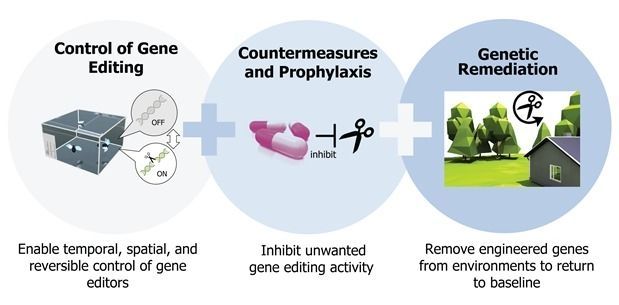DARPA created the Safe Genes program to gain a fundamental understanding of how gene editing technologies function; devise means to safely, responsibly, and predictably harness them for beneficial ends; and address potential health and security concerns related to their accidental or intentional misuse. Today, DARPA announced awards to seven teams that will pursue that mission, led by: The Broad Institute of MIT and Harvard; Harvard Medical School; Massachusetts General Hospital; Massachusetts Institute of Technology; North Carolina State University; University of California, Berkeley; and University of California, Riverside. DARPA plans to invest $65 million in Safe Genes over the next four years as these teams work to collect empirical data and develop a suite of versatile tools that can be applied independently or in combination to support bio-innovation and combat bio-threats.
Gene editing technologies have captured increasing attention from healthcare professionals, policymakers, and community leaders in recent years for their potential to selectively disable cancerous cells in the body, control populations of disease-spreading mosquitos, and defend native flora and fauna against invasive species, among other uses. The potential national security applications and implications of these technologies are equally profound, including protection of troops against infectious disease, mitigation of threats posed by irresponsible or nefarious use of biological technologies, and enhanced development of new resources derived from synthetic biology, such as novel chemicals, materials, and coatings with useful, unique properties.
Achieving such ambitious goals, however, will require more complete knowledge about how gene editors, and derivative technologies including gene drives, function at various physical and temporal scales under different environmental conditions, across multiple generations of an organism. In parallel, demonstrating the ability to precisely control gene edits, turning them on and off under certain conditions or even reversing their effects entirely, will be paramount to translation of these tools to practical applications. By establishing empirical foundations and removing lingering unknowns through laboratory-based demonstrations, the Safe Genes teams will work to substantially minimize the risks inherent in such powerful tools.
